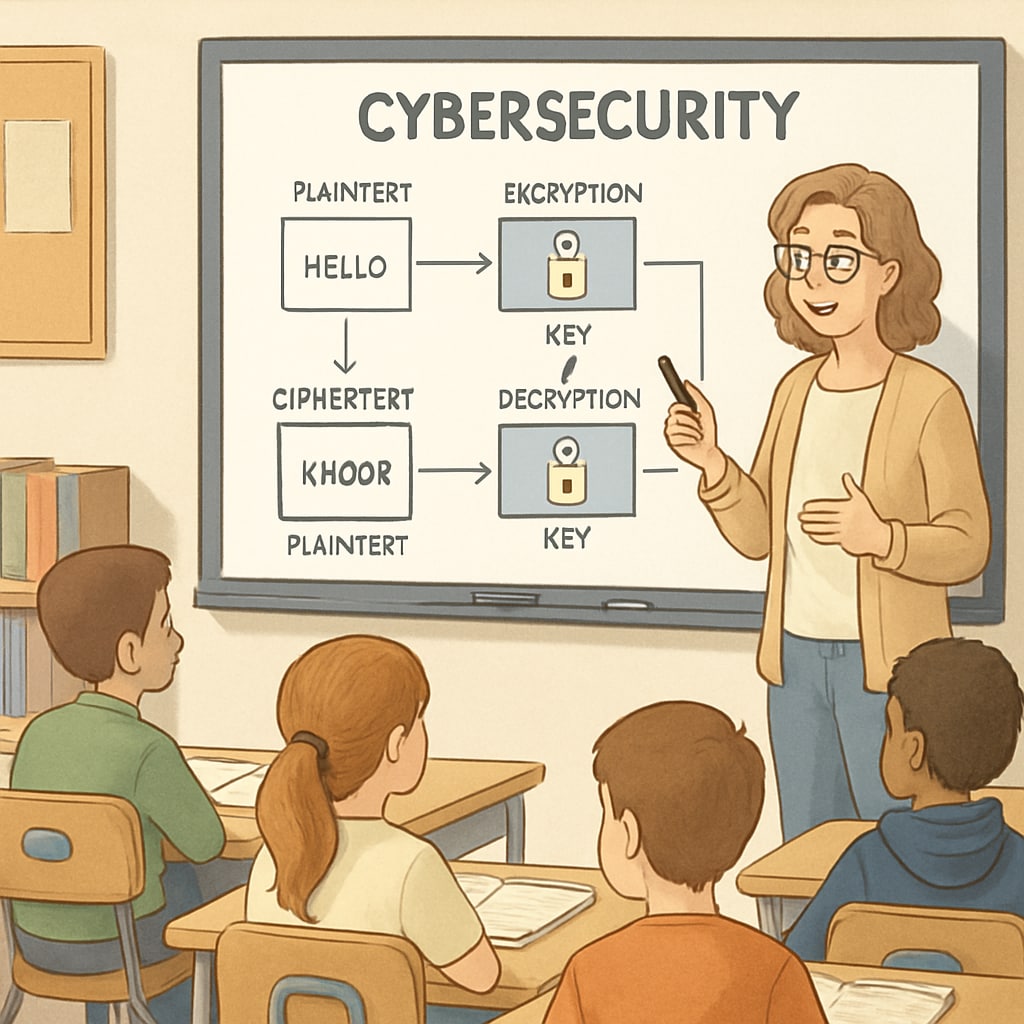The intersection of university reputation, employment, and cybersecurity has become increasingly pivotal in today’s digital era. As cyber threats continue to grow in complexity, the demand for skilled cybersecurity professionals is at an all-time high. This demand underscores the importance of preparing students early, particularly during their K12 education, to develop foundational cybersecurity knowledge and skills. Moreover, the university a student chooses to attend later in life often plays a significant role in their career trajectory, influencing job opportunities and professional credibility.
The Growing Importance of Cybersecurity Education in K12 Schools
In an era where data breaches and cyberattacks dominate headlines, teaching cybersecurity at an early age is no longer optional—it’s essential. K12 educators are beginning to integrate cybersecurity topics into their curricula, helping students understand online safety, data privacy, and the ethical use of technology. This early exposure not only fosters responsible digital citizenship but also lays the groundwork for advanced studies and careers in cybersecurity.
For example, programs such as national cybersecurity curricula have been introduced in several countries, aiming to make students cyber-aware and cyber-skilled. Introducing concepts like encryption, risk assessment, and malware analysis at a young age provides students with a competitive edge as they transition into higher education and, eventually, the workforce.

How University Reputation Shapes Cybersecurity Employment
While early education sets the stage, the university a student attends can significantly impact their job opportunities in cybersecurity. Employers often view university reputation as a reflection of a candidate’s skills, resources, and professional network. Prestigious universities with well-regarded cybersecurity programs, such as Carnegie Mellon or Stanford, are often sought after by top tech companies and government agencies.
According to a study published by Britannica, universities with strong reputations tend to attract better faculty, more funding, and partnerships with leading industries. These factors directly benefit students by providing access to cutting-edge research, internships, and mentorship opportunities. For aspiring cybersecurity professionals, these connections can be critical, as the field is highly specialized and often relies on networking for career advancement.
However, it’s important to note that while university reputation matters, practical skills and certifications (such as Certified Information Systems Security Professional or CISSP) are equally, if not more, crucial in the cybersecurity domain.

Bridging the Gap Between K12 Education and University-Level Cybersecurity Training
The transition from K12 education to university is a critical period for those pursuing cybersecurity careers. High schools that offer advanced placement (AP) courses in computer science or extracurricular activities like coding clubs can better prepare students for rigorous university programs. Additionally, partnerships between schools and universities can create a seamless pipeline for students to advance their cybersecurity education.
For example, dual-enrollment programs allow high school students to take college-level courses in cybersecurity, giving them a head start. Similarly, summer camps and online resources like Cybersecurity and Infrastructure Security Agency (CISA) initiatives provide hands-on experiences that enhance learning and career readiness.
The Role of Employers in Valuing Both Education and Skills
Employers in the cybersecurity field often value a balanced combination of academic credentials and practical experience. While a degree from a reputable university can open doors, hiring managers frequently prioritize candidates with real-world problem-solving abilities. This is why internships, certifications, and participation in cybersecurity competitions like Capture the Flag (CTF) events are highly recommended for students.
Moreover, employers increasingly appreciate candidates who demonstrate a lifelong learning mindset. Cybersecurity is a dynamic field, requiring professionals to stay updated on the latest threats and technologies. As a result, students who cultivate curiosity and adaptability during their K12 and university years are better positioned to succeed in the job market.
Conclusion: Preparing for a Future in Cybersecurity
The journey to a successful cybersecurity career begins long before college. By incorporating cybersecurity education into K12 curricula, students can develop the foundational skills that will set them apart in the competitive job market. At the same time, the university a student attends—along with its reputation—can significantly influence their employment prospects, providing access to resources, networks, and opportunities.
Ultimately, a well-rounded approach that combines early education, university training, and practical experience is key to thriving in this ever-evolving field. As cybersecurity continues to grow in importance, the investment in education at all levels will undoubtedly pay off, securing not only individual careers but also the digital future of society.
Readability guidance: Short paragraphs with clear headings enhance readability. Lists and external links provide additional resources for readers, while transition words ensure smooth flow between ideas.


